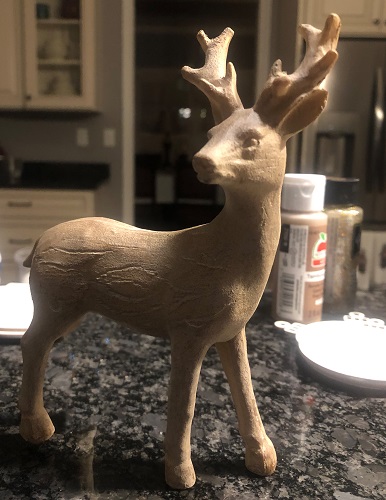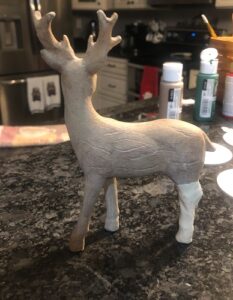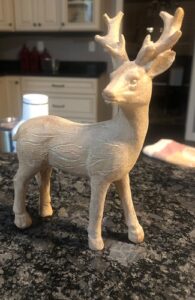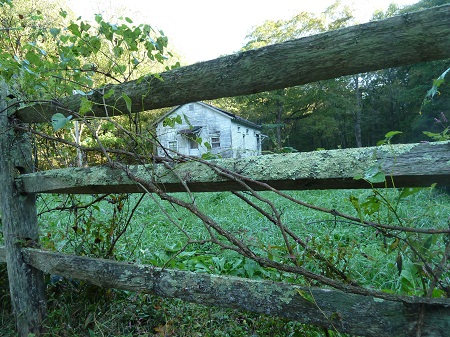Not Have a Leg to Stand On

My friend Sharon recently bought a small decorative deer that did not have a leg to stand on. Actually, it had three legs, but the fourth leg was missing.
Sharon was not sure when she could exchange the deer. Creative person that she is, she used her grandchildren’s play dough to make a new leg. She painted the leg, so it would not look like it wore a cast.
Not have a leg to stand on means we have no support for our thoughts, words, or actions.

No facts back up our position. We lack the evidence we need. This applies to:
- Personal positions
- Courtroom arguments
- Scientific studies
- Medical trials
- Educational research
- Political stands
With no leg to stand on, we have no possibility for success. Regardless of our efforts, we end up spinning our wheels. We waste our time.
When that happens, we need to correct the situation.
Like my friend, we alter our circumstances. We may:
- Change our stand
- Take a new stand
Whatever we do, we want to seek and follow the truth.
We don’t give up. Rather, we find a better way. As my friend did with her deer, we fix what’s broken.
When we don’t have a leg to stand on, remember to look to the one who created us.

We may be broken and disabled, but God can pick up the pieces of our brokenness and make us whole again.
“If you do not stand firm in your faith, you will not stand at all” (Isaiah 7:9 NIV).
Thanks to Sharon Berry for the suggestion and photos.
Do you have an expression you want explained or a thought about this one? If so, please comment below.
Subscribe to receive my weekly posts by email and receive a free copy of “Words of Hope for Days that Hurt.”
If you enjoyed this post, please share it with your friends.
 Have you noticed how often we change our lives? We try to improve ourselves, other people, or our possessions. A desire to improve can be a wonderful idea. However, if it ain’t broke, don’t fix it. (I apologize for the poor grammar, but that is the way we say it.)
Have you noticed how often we change our lives? We try to improve ourselves, other people, or our possessions. A desire to improve can be a wonderful idea. However, if it ain’t broke, don’t fix it. (I apologize for the poor grammar, but that is the way we say it.)